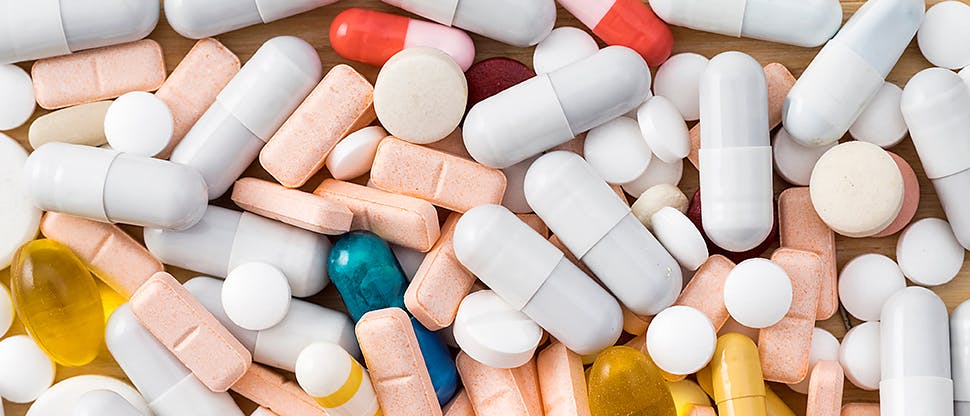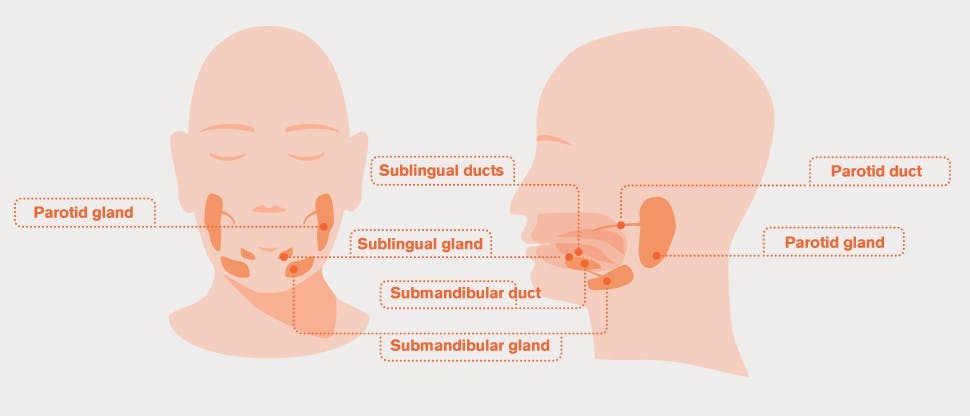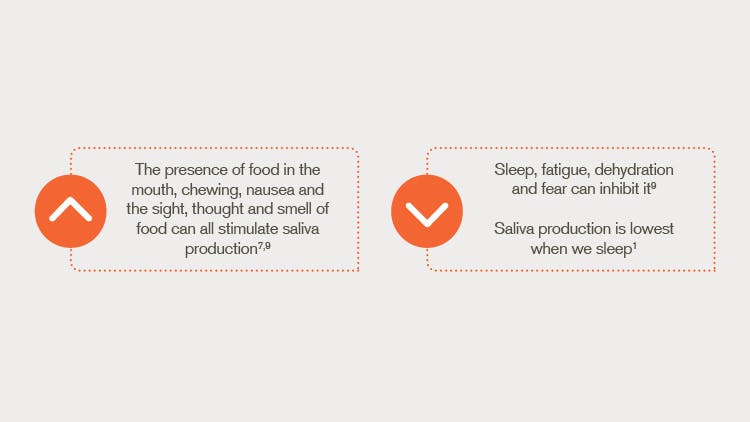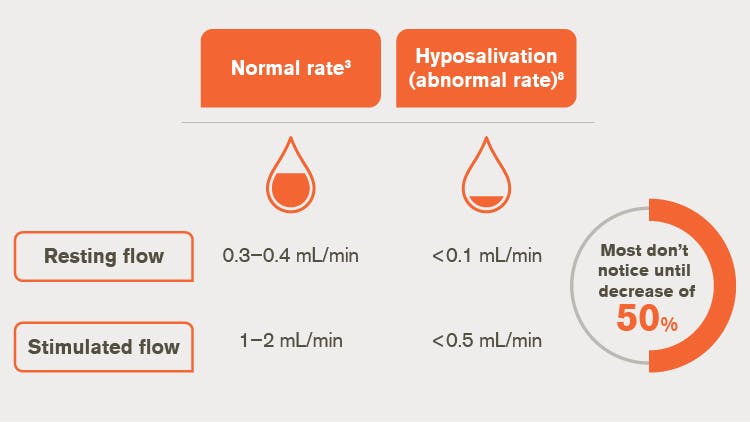A dry mouth: Causes and Mechanisms

Recognising the underlying causes of a dry mouth in your patients
Although medication is one of the most common causes of a dry mouth, other causes can lead to reduced saliva flow.
Causes of a dry mouth
- Taking medication is one of the most common causes of a dry mouth as it is a side effect of many common medicines2,3
- 40% of patients taking multiple medications at once may experience a dry mouth4
Other causes include conditions such as Sjögren’s syndrome and salivary gland damage5,6
Salivary gland hypofunction
A dry mouth is associated with changes in saliva composition and may have no immediately identifiable cause.3,5 Salivary gland hypofunction – the objective measurement of reduced salivary flow – can be associated with:3,5,7,8
- Medical treatments and polypharmacy
- Lifestyle choices
- Health conditions
- Damage to the salivary glands

Salivary gland physiology
Three main salivary glands produce 90% of saliva.5 These glands produce the two major types of secretion that form saliva:5
- Serous fluid (mainly from the parotid and submandibular glands)
- Mucous (mainly from the submandibular and sublingual glands)

Certain stimuli can change the saliva flow rate and cause a dry mouth7
The autonomic nervous system (ANS) controls the volume and type of saliva from these glands and maintains a steady flow.7Different stimuli may increase or decrease the rate of this flow.7
The different causes of a dry mouth
Biotène – helping your patients manage a dry mouth
Impact on patient quality of life
Find out about the impact that a dry mouth has on patients’ daily lives

